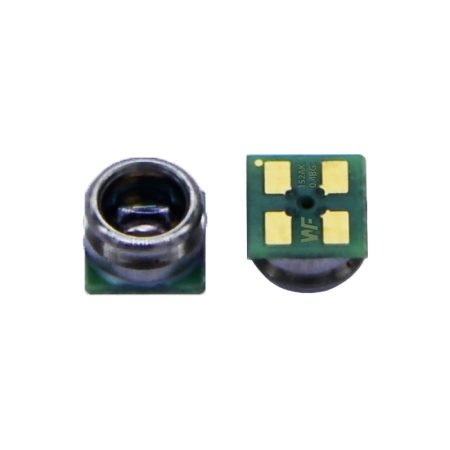Catalog
1. Real-time Pressure Monitoring and Dynamic Control
High-Speed Response Detection
MEMS sensors with analog output typically respond within 1ms, enabling instant pump speed adjustment based on pressure fluctuations. Systems receive sensor signals for dynamic motor control through PLCs.
Intelligent Start-Stop Logic
Pressure sensors combined with control algorithms enable smart pump start-stop management. Low pressure triggers pump activation while high pressure initiates automatic shutdown, preventing ineffective operation.
Water Hammer Prevention
Ultra-fast response characteristics allow early detection of pressure impact fluctuations in pipelines, providing warning signals to control systems for gradual speed adjustments.

2. Waterproof Design and Environmental Adaptability
IP67 Protection Performance
Sensor bodies feature IP67 protection rating, ensuring reliable operation in humid environments and water splash conditions with multiple sealing measures including O-rings and stainless steel housings.
Corrosion-Resistant Materials
Media contact parts use 316L stainless steel with excellent corrosion resistance for long-term water quality exposure. Membrane surfaces feature anti-scaling and self-cleaning capabilities.
Temperature Compensation
Built-in temperature compensation circuits automatically correct measurement deviations caused by environmental temperature changes, maintaining stable accuracy from -40°C to 85°C.
3. Range Matching and Signal Output Optimization
Customizable Range Selection
Customizable ranges from 0-0.5bar to 0-10bar meet different water tank and pipeline system pressure requirements, ensuring signal linearity and stable output for optimal system accuracy.
Analog Signal Linear Calibration
Factory-calibrated linearity ensures good linear relationship between output signals and pressure values throughout full range, with linearity typically better than 0.25%FS.
Long-term Stability Guarantee
Advanced silicon piezoresistive technology and stable packaging processes provide excellent long-term stability with annual drift typically less than 0.1%FS.
4. System Integration and Interface Compatibility
Standard Analog Output Interface
Compatible 1-2uA and 0-5V standard signals seamlessly interface with PLC/DCS control systems. Current loop output offers excellent interference resistance for long-distance transmission.
Simplified Installation Configuration
Engineers can achieve zero-point and full-scale error compensation through simple parameter settings, enabling excellent integration and precise control with standard w
elding connections.
Electromagnetic Compatibility Design
Internal circuits feature low-noise design and electromagnetic shielding technology, maintaining stable signal output even in strong electromagnetic interference environments.
5. Economic Benefits and Maintenance Advantages
Cost-Benefit Analysis
Compared to complex digital output solutions, analog sensors offer lower cost, smaller failure rates, and convenient maintenance. Simple analog signal processing circuits provide high reliability.
Maintenance Monitoring Convenience
Regular observation of output current or voltage enables assessment of sensor and system status, reducing operational costs and improving work efficiency through standard testing tools.
Energy Consumption Optimization
Precise pressure control enables on-demand pump operation, avoiding energy waste from over-pumping. Statistics show 20-40% energy savings compared to traditional timing control methods.
Conclusion
Pressure sensors provide precise, fast, dynamic pressure monitoring and control for water tank pump systems, achieving efficient power-saving water supply solutions through waterproof design, range matching, and analog output interfaces.
The above introduction only scratches the surface of the applications of pressure sensor technology. We will continue to explore the different types of sensor elements used in various products, how they work, and their advantages and disadvantages. If you’d like more detail on what’s discussed here, you can check out the related content later in this guide. If you are pressed for time, you can also click here to download the details of this guides air pressure sensor product PDF data.
For more information on other sensor technologies, please visit our sensors page.
